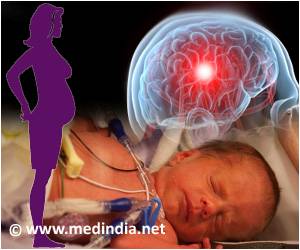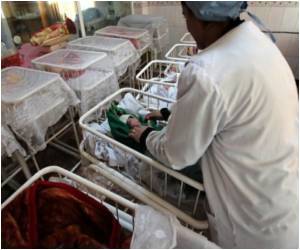A recent study finds a strong association between preterm birth and the risk of infant and young adult death, autism and ADHD.

"The study confirms the degree to which preterm birth is a major public health concern and strongly supports the need for social services that reduce the incidence of preterm birth," said lead author Brian D'Onofrio, associate professor in the Department of Psychological and Brain Sciences at Indiana University Bloomington. "Yet, the findings also suggest the need to extend services to all siblings in families with an offspring born preterm. In terms of policy, it means that the entire family, including all of the siblings, is at risk."
The study, "Preterm birth and mortality and morbidity: A population-based quasi-experimental study," was published Sept. 25 in JAMA Psychiatry. Co-authors include medical researchers from Karolinska Institutet in Stockholm.
In what is thought to be the largest population-based study of preterm births to date, the researchers looked at records of 3.3 million children born in Sweden between 1973 and 2008. Using a sibling-comparison approach and considering a broad continuum of premature gestational ages, the study examined the associations between preterm birth and mortality, psychological health, educational outcomes and social functioning.
The results in some ways are consistent with previous studies and similarly emphasize the dangers of preterm birth. Yet, unlike those studies, which compare preterm infants to unrelated non-preterm infants, the current study also compared preterm infants to their non-preterm siblings and cousins -- an approach that made it possible to shed new light on the problem.
"The study has given us insights that no other study has been able to do," D'Onofrio says.
Advertisement
Comparing siblings is a way of controlling for and holding constant everything those siblings share: mothers and fathers, socio-economic status, and some genetic factors.
Advertisement
When the researchers looked at infant and young adult mortality, the results were the same when comparing siblings as when they compared preterm infants to unrelated non-preterm individuals. Early gestation is associated with greater risk of mortality, suggesting preterm birth has a causal influence. For autism and ADHD, the results are the same with both methods.
In other areas, however, the results are strikingly different from previous findings. The association between preterm birth and severe mental illness, such as schizophrenia or bipolar disorder, was greatly reduced when comparing siblings. Both siblings had higher chances of severe mental illness than the general population. For suicide, the findings are even more dramatic. Although individuals born preterm are more likely to attempt suicide than unrelated individuals who were not born preterm, no distinction exists between siblings.
This suggests, D'Onofrio said, "that part of the association with severe mental illness and all of the association with suicide isn't due to preterm birth; it is due to something else, something that siblings share."
The difference occurred again when researchers looked at income. Being born at an earlier gestational age is associated with low income when you compare the individuals born preterm to unrelated individuals born at 40 weeks of gestation. But when you compare siblings, it becomes apparent that the key factor is something else. Factors that siblings share cause the low income.
"Our study is part of a growing interest in research and public health initiatives focusing on very early risk," D'Onofrio said. "When you look at early risk factors, they don't just predict one type of problem; they frequently predict lots of problems with long-term implications."
Exploring how these factors have subsequent ramifications across numerous domains and functions -- mortality, physical and mental health, intellectual abilities, social outcomes -- is a burgeoning area of research for a problem that is increasingly widespread. According to the World Health Organization, in both developing and industrialized countries, more than one in 10 children are born prematurely, and the numbers are growing.
Source-Eurekalert









